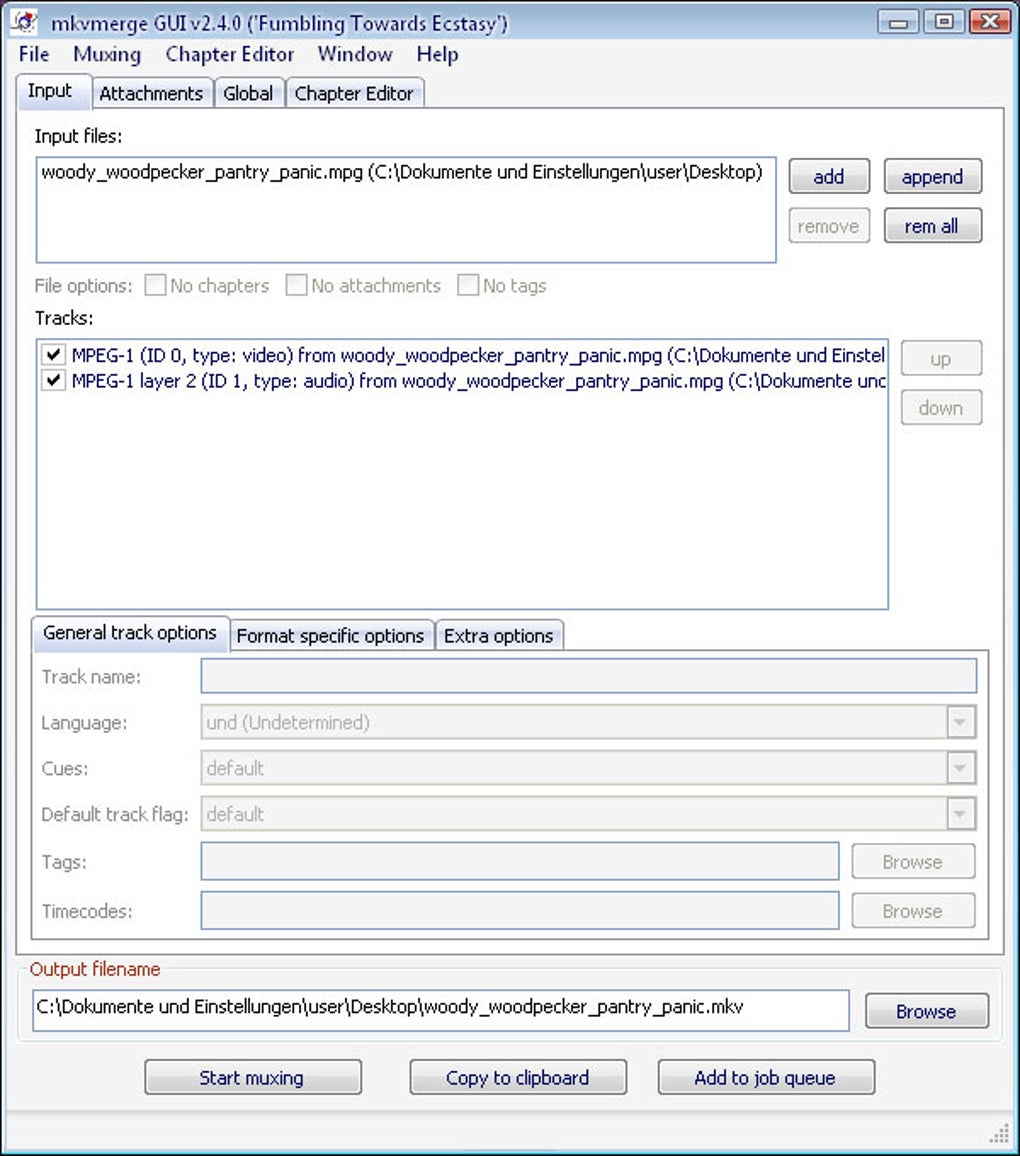

I think i'm figuring this out slowly, and thanks for the tip on writing that function to add to the original script to call into the docker container. When I start your mkvtoolnix container, I see a UI and no way to use scripts or command line even so I'm a bit lost. If I go through the route of using the scripts and invoking it how you suggested using the mkvtoolnix container, how do I even use it? It's a super basic question and out of scope of your container since it's a separate script, but wanted to ask in case you can provide pointers.

So processing video with it would take way too long since it has to transcode video. Dunno if handbrake is better.Īccording to this thread on github ( ), Handbrake will never just passthrough video as it's against their goals of the product. Hence why I found that mkvtoolnix script that everyone seems to say is the gold standard. However, this doesn't handle all the possible cases, such as stuff with 6 channel DTS and mapping it to 5.1, etc etc. usr/sbin/ffmpeg -i video.mkv -map 0 -vcodec copy -scodec copy -acodec ac3 -b:a 640k video-AC3.mkv I've found I can easily do it with ffmpeg using command like this: I'm trying to do the minimum amount of work to convert the DTS to AC3 without extracting the audio, converting the audio to AC3 and then muxing the audio back to. With handbrake, i dug into it, and noticed you maintain a container for it, so thanks wrote some shell scripts to make sure it's downloaded regularly to get updates and copies into /usr/sbin, as well as handling system reboots. I have ffmpeg working on my system using the ffmpeg static libraries. For example, for mkvmerge, you could add this function:ĭocker run -rm jlesage/mkvtoolnix also need one for mkvextract and mkvinfo.īut what about ffmpeg ? Will you use another container for it? Using HandBrake seems to be a solution that requires less work on your side.Įlse, I guess you need to modify the script to invoke mkvtoolnix of the container. However, I"m not opposed to using Handbrake, i didn't think it was the best thing suited for the job, but maybe I'm wrong.īasically, what I want to do, is convert all my current videos that are DTS to AC3, then as I add new videos, if they have DTS, do a conversion at the time I copy into my library. From what I can tell, your container doesn't contain ffmpeg nor rsync which the script requires in addition to mkvtoolnix. My thought was to script outside of the container, but not opposed to running it from within the container. i think i prefer to try to script the thing, hence how i got to that script i linked to since it takes care of so many specific DTS->AC3 conversion issues. Then you can use the watch folder to automatically convert your videos. You could define a preset that converts DTS tracks and copy everything else. The other solution that could be easier is to use HandBrake ( ). How are you planning to use the script? Do you want to run the whole script inside a container or you just want mkvtoolnix executables from the container? Util.js:220 Msg: Server disconnected (code: 1006) Websock.js:292 WebSocket connection to 'ws://192.168.1.2:7805/websockify' failed: Error during WebSocket handshake: Unexpected response code: 502 Util.js:218 Msg: noVNC ready: native WebSockets, canvas rendering i really have no clue and can hardly say "THEN" it is happening, Ĭause using apache guacamole always works, vnc viewer always works, just as note. I guess may cause i have alot 192.168.1.2:xxxx adresses connecting to docker from this mashine, still should work but thats may the reason. but when i now go ahead and use hostname instead ip it works. In dev console from chrome, some websocket error.
MKVEXTRACT MKVTOOLNIX HOW TO
May a hint what you could need ? no idea how to show content of the cookie. It worked a few days and now it aint working anymore for a few days even after reboots and so on. Next time you reproduce the issue, can you provide content of the cookies using Chrome developer tools?


 0 kommentar(er)
0 kommentar(er)
